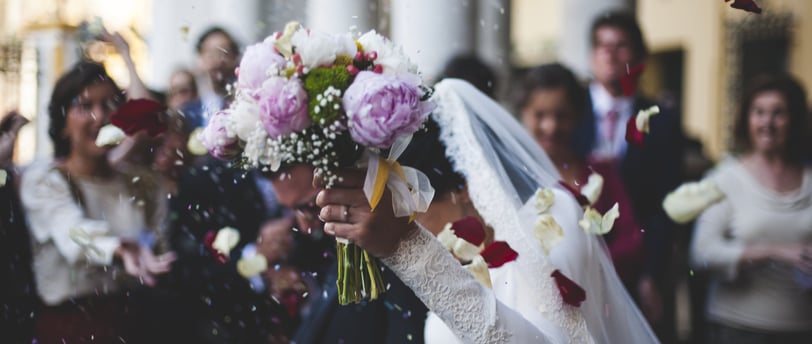What to Expect at a Persian Wedding: A Guide for Guests and Couples
Negar Mansourian
12/28/20244 min read


Traditional Iranian weddings are often grand, vibrant, and rooted in tradition. Whether you’re a guest attending your first Iranian wedding or a couple about to celebrate your big day, this guide will walk you through the key elements, customs, and cultural nuances to help you fully appreciate and enjoy the experience. Persian weddings are rich in symbolism, family involvement, music and dance, making them both joyous and unforgettable. You can read more about the significance of specific elements in the Iranian wedding, here.
Pre-Wedding Events:
Prior to the wedding, some couples may hold an engagement party to celebrate the official announcement of their union. Depending on the ethnic origin of the couple's families, some may hold additional pre-wedding parties such as Hanaa-bandaan. These events are excuses for the families to get to know each other more, exchange gifts, and have a joyous time. These rituals have evolved over time and may not be part of every couple's plans.
The Wedding Ceremony: The Aghd
The Aghd is the heart of a Persian wedding. This ceremonial component involves the couple sitting in front of a beautifully arranged spread called the Sofreh Aghd. Guests will be seated around the couple, and the ceremony itself is often officiated by an officiant or celebrant, who recites the wedding contract and necessary blessings.
Key Elements of the Sofreh Aghd (see details in this blog):
Ayeneh va Shamdoon (Mirror and Candles)
Kalleh Ghand (Sugar Cones)
Naan, Panir, Sabzi (Bread, Cheese, and Fresh Herbs)
Espand (Wild Rue)
Golaab (rosewater)
Asal (honey)
Khoncheh (Herbs and Spices)
Tokhm-e Morg, Badaam, Gerdou, Fandogh (Eggs and Nuts)
Shirini (Pastries and Sweets)
Holy Book or Poetry
Sekkeh (Coins)
Once the official words of the marriage contract (Aghd) are recited, the bride is asked three times if she consents to the marriage, often creating a playful moment where she waits to say "yes." The couple will then dip their pinky fingers in honey and feed each other to symbolize sweetness and harmony in their future.
The Reception: Jashn
The reception, or Jashn, is where Persian weddings come alive with lavish celebration. Here are some key features to expect during the party:
Traditional Music and Dance
Persian weddings are known for their energetic and joyful music, often featuring a live band or DJ playing both Persian and Western songs. One key moment is the Raghs-e Chaagoo (Knife Dance) just before the cake-cutting, where close friends and relatives dance with the designated knife, playfully refusing to give it to the bride and groom until they receive a gift (often in the form of cash) in exchange. This humer-filled process will eventually lead to the cake-cutting ceremony.
Lavish Feasts
Persian weddings are known for their generous and elaborate feasts. Expect to enjoy traditional dishes like kebab, rice with saffron, roasted lamb, stews (Khoresh), and a variety of appetizers and desserts. The abundance of food symbolizes prosperity and happiness for the couple’s future.
Modern vs. Traditional Persian Weddings
In today’s world, Persian weddings often blend traditional and modern elements. While the Aghd is a deeply traditional part of the wedding, couples may choose to modernize the reception with Western touches like speeches, having a first dance, or incorporating non-traditional decor. Many Persian weddings, especially in Western countries, will have bilingual officiants, ensuring that both Persian and non-Persian-speaking guests understand and appreciate the ceremony.
Dress Code
Unless stated otherwise by the hosts, guests should expect Persian weddings to be formal and elegant. It’s a great occasion to dress up in vibrant, colorful attire. Guests often embrace the opportunity to wear lavish, ornate outfits, reflecting the grandeur of the occasion. Some couples, however, might prefer an informal and relaxed theme for their wedding. Therefore, it is always a good idea to check.
Tips for Guests Attending a Persian Wedding
Be Prepared for a Long Celebration: Persian weddings are typically long, with a detailed ceremony followed by hours of dancing, eating, and celebration. Plan to spend the entire day and evening celebrating with the couple.
Expect to Dance: Dancing is a huge part of the Persian wedding celebration. Even if you don’t know Persian dance styles, don’t worry—everyone is encouraged to join in the fun. The energetic dances, including traditional and modern, are a joyful way for guests to participate.
Tips for Couples Planning a Persian Wedding
Personalize the Sofreh Aghd: While the Sofreh Aghd is filled with traditional items, many couples choose to personalize it with modern decor or meaningful family heirlooms. This can create a special and unique setting for the ceremony.
Blending Traditions: If one of the partners is not Iranian, consider incorporating customs from both cultures. For example, you can include a first dance after the completion of Aghd ceremony or have a Western-style reception alongside traditional Persian elements.
Hiring a Bilingual Officiant: Ensure that your officiant speaks both Persian and English, so that guests from both sides can fully appreciate the ceremony. This will help make the experience inclusive and enjoyable for everyone.
Mix of Music: Persian weddings have lively music and dancing, but if your guest list includes a diverse mix of cultures, consider blending Persian songs with Western or other cultural music to appeal to all guests.
Conclusion
A Persian wedding is a dazzling event filled with love, tradition, and festivity. Whether you are a guest experiencing these customs for the first time or a couple preparing to blend your cultures in a meaningful way, understanding the structure and significance of the celebration will enhance your experience. By embracing both the ancient traditions of Iran and modern elements, Persian weddings are a unique, memorable fusion of the past and present, honoring love in all its forms.
Universal Vows
Celebrating love across cultures and traditions.
Contact Info:
info@universalvows.com
(224) 300-0455
© 2024. All rights reserved.
About
FAQ
Helpful Links:
Privacy Policy
Terms
